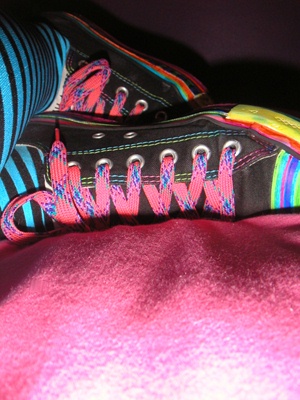All Nonfiction
- Bullying
- Books
- Academic
- Author Interviews
- Celebrity interviews
- College Articles
- College Essays
- Educator of the Year
- Heroes
- Interviews
- Memoir
- Personal Experience
- Sports
- Travel & Culture
All Opinions
- Bullying
- Current Events / Politics
- Discrimination
- Drugs / Alcohol / Smoking
- Entertainment / Celebrities
- Environment
- Love / Relationships
- Movies / Music / TV
- Pop Culture / Trends
- School / College
- Social Issues / Civics
- Spirituality / Religion
- Sports / Hobbies
All Hot Topics
- Bullying
- Community Service
- Environment
- Health
- Letters to the Editor
- Pride & Prejudice
- What Matters
- Back
Summer Guide
- Program Links
- Program Reviews
- Back
College Guide
- College Links
- College Reviews
- College Essays
- College Articles
- Back
The Q Word
Like every person on the planet, I am a lot of things. I’m female. I’m a teenager. I’m an avid star-gazer. I’m obsessed with miniature cacti. I’m a poet. I’m sarcastic. I’m weirdly good at opening lids. I’m an empath. I’m a survivor. I’m vulnerable and tenacious and iridescent. I am also queer.
Historically speaking, this is an extremely controversial label. It’s incendiary, it turns heads. It grabs people’s attention with the force of a nuclear blast and doesn’t let go—it’s a game-changer. Say it in any given social situation and the energy in the room shifts. There’s a curiosity among everyone that wiggles to the surface, a giddy kind of discomfort mixed with desire to know more, to really experience the sensation of this word; what it means, what it embodies, if it applies to them personally.
For a long time, queer was a humiliating slur for a minority whose sexual, romantic, and gender orientation/identity fell outside of the ideal, “normal,” heterosexual cisgender model. Today, it still carries an intense stigma for many individuals, perhaps especially so for older members of the LGBTQ+ community. For them, being called queer may be powerfully negative act—a crushing violation of self. They turn away from it. It is too ugly, too shameful to bear. There’s no way to reconcile the painful effects this title has had throughout human history. It’s a reminder of oppression, mistreatment, and ridicule. It is ugly red graffiti sprayed on homes of wonderful men and women. It is schoolyard bullying and corporate harassment. It is excruciating heartache. I realize this. And yet.
I’m here to tell you another story. A story about a group of adolescents who are falling madly in love with the notion of queerness, because it is beautiful and enthralling and validating and real. I’m here to tell you about us.
In very recent times, being lesbian, gay, bisexual, asexual, pansexual, transgender, agender, etc., meant a life of secrecy and suppression. The devastation of being robbed at birth of the chance to fit with society’s status quo caused countless suicides, severe self-harm, and the toxic buildup of a lifetime of internalized hate, but a transformation is taking place.
All over the world, young men, women, and beauties in between, are refuting the idea that queer is something bad. Some of us are doing this quietly, from behind blog posts and laptop screens, and others of us are doing it noisily, from behind megaphones and microphones, with sweat stinging our eyes and indignation pooling in our bellies like magma, but we’re all pushing back. We’re arming ourselves with whatever tools we can access and beginning the inimitable task of demolishing from the top down the destructive aura surrounding the word queer. We’re intelligent and tired and fierce and vehement and done. Every generation wants its chance at “reclaiming old, unpopular labels as something new and pure,” but this is different. This is an unstoppable crescendo of justice, and it’s only getting louder.
As someone who is attracted to both women and men, I’ve been down the road of internalized homophobia. Not severely, because I’m lucky enough to have a mother who’s always been a fierce advocate of gay rights and the freedom to love whomever we want, but I’ve felt isolated and marginalized. I’ve agonized over coming out. My body’s been shaky with dread as I wrestled with the message thrown at me so often: Queer is wrong. Queer is an insult. Queer is a pathetic selection of lit in the back corner of our public libraries. Queer is attention-seeking. Queer is selfish. Queer is disgusting. Queer is invisible. It was enough to awaken what I consider one of the most fabulous forces in the universe—molten, heartfelt, fury. I was a timid, closeted biromantic teenage girl, and then something happened, because all of a sudden in her place was fist-clench and lifted chin and, most remarkably of all, pride. What happened was what’s happening to queer youth all over the globe, which is a refusal to be pinned down a second longer. A sudden, radical soaring. And yes, a reclaiming of a word so hated so long.
For us, queer is more than a description for someone who isn’t straight. It’s a battle cry for everybody living outside the norm, whether this be because of orientation, gender, choice of style, taste in music, political views, appearance, or personality. It’s a word that shines with celebration for those too soft or loud or peculiar or revolutionary or exuberant. Like the chorus line in Icona Pop’s beloved hit single which declares, “I don’t care—I love it! I don’t care!” it’s a word that roars, with shimmering, utterly endearing audacity:
Yes, I am different. And this is a splendid thing.

Similar Articles
JOIN THE DISCUSSION
This article has 1 comment.